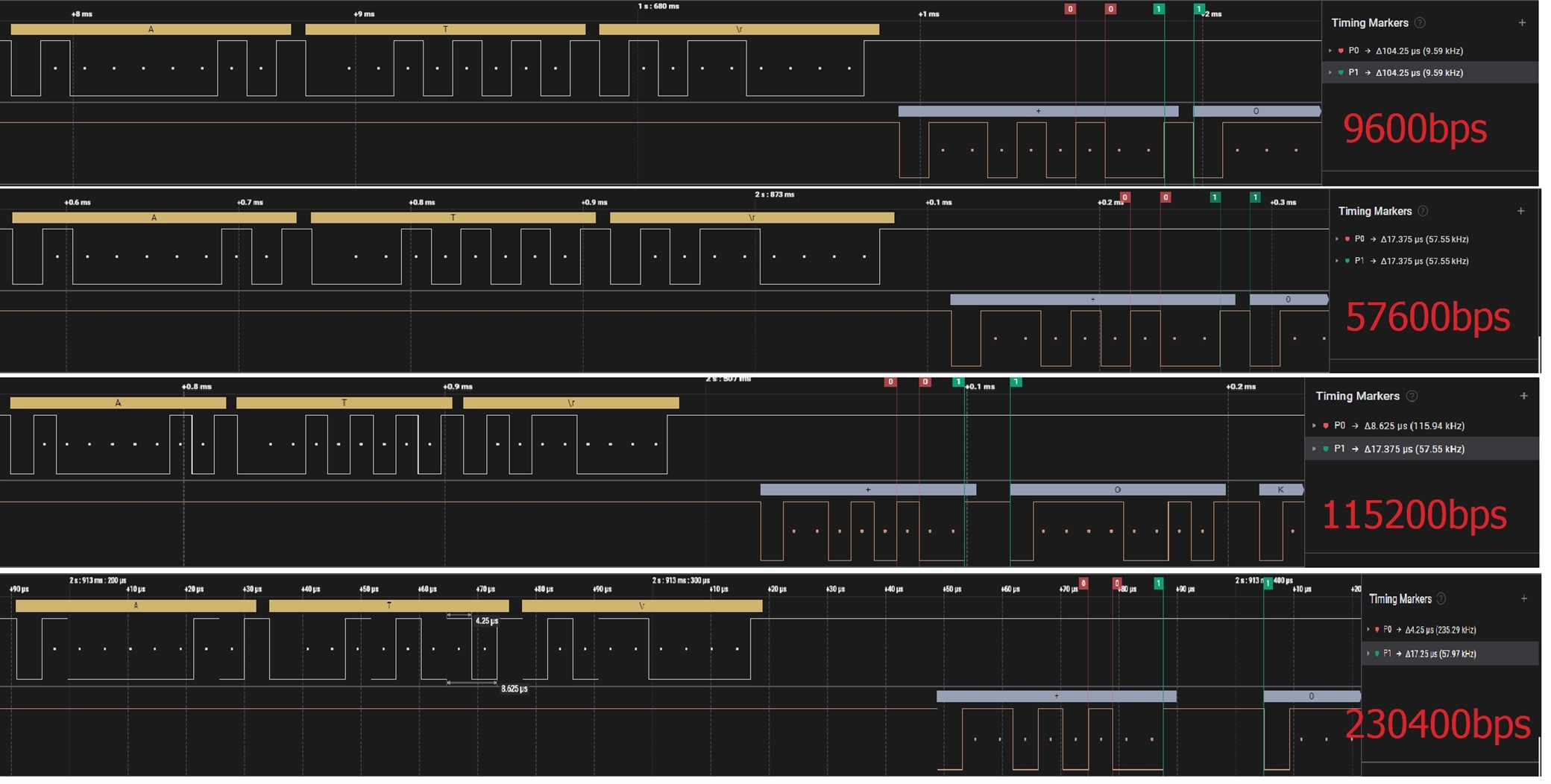Dear expert.
I found something strange thing in UART operation
one of our product is developed based on the NUS example in nRF5_SDK using nRF52833
In low speed baudrate(under 115200bps) settings, all uart pulses are same duration
but in high speed baudrate(from 115200bps and over), stopbit pulse time is different with other bits pulse every data.
Below image is captured signal by analyzer in each baudrate and can find delta-time(p0: normal bits time, P1: stopbit time)
In test sequence, nRF52833 send TX response "+OK\r" if received "AT\r"
capture image shows stopbit pulse keep 57kHz even though over 57600bps baudrate
I don't know why stopbit pulse shows strange symtom in high speed baudrate
let me know what am I should check.
BR.
Ethan



